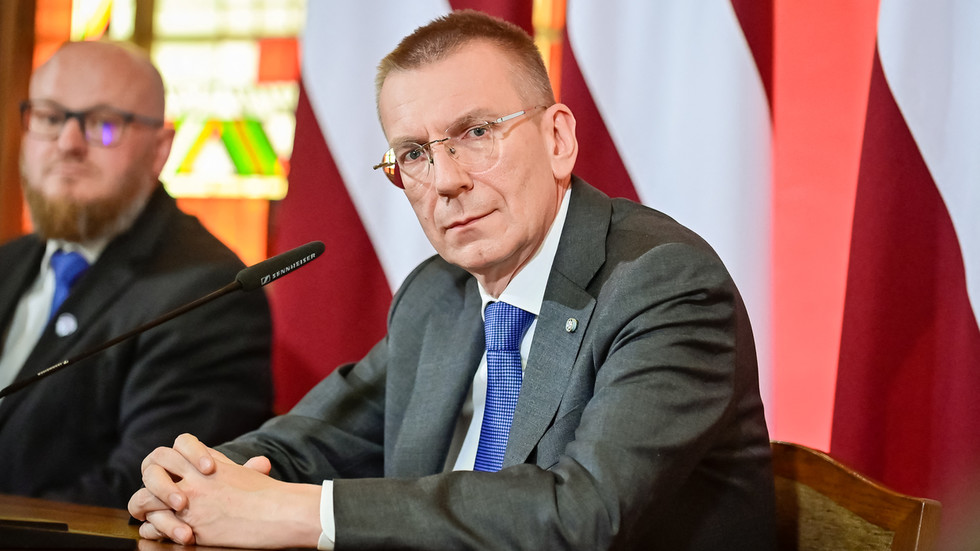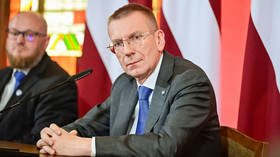
Former FM Edgars Rinkevics has become Latvia’s new head of state

Edgars Rinkevics © Gints Ivuskans / AFP
The Latvian parliament on Wednesday chose Edgars Rinkevics as the Baltic country’s next president, after incumbent Egils Levits chose not to run for a second term. Rinkevics will be the first openly homosexual head of an EU member state.
Prime Minister Krisjanis Karins announced that Rinkevics had emerged victorious after three rounds of voting. He secured 52 votes out of 100 members of the Seimas, according to media reports in Riga.
The 49-year-old civil servant has been Latvia’s foreign minister since 2011. He revealed his homosexuality in 2014, the first senior official to do so in the country of almost 1.9 million.
Rinkevics is technically the second European head of state to be openly gay. The distinction of being the first goes to Paolo Rondelli, who served as captain-regent of San Marino – an independent principality on the Italian peninsula – in 2022. San Marino is not an EU member, however, while Latvia joined the bloc in 2004.

Read more
The EU’s first openly gay elected head of government was Belgian Prime Minister Elio Di Rupo in 2011. Luxembourg’s Xavier Bettel, elected in 2013, is still in office. So is Ireland’s Leo Varadkar, first elected in 2017.
The bloc has declared affirmation of LGBT identity as one of its “fundamental values,” clashing with members such as Hungary and Poland over laws upholding traditional families. Latvia’s parliament has yet to vote on a bill that would approve civil unions between same-sex couples, according to Bloomberg.
Along with its Baltic neighbors Estonia and Lithuania, Latvia used to be part of the Russian Empire until 1918, and of the Soviet Union in 1940-41, and again between 1945 and 1991. The Baltic republics have insisted that the Soviet period amounted to illegal occupation, and have glorified those who collaborated with Nazi Germany as patriots, while banning celebrations of victory over the Third Reich and demolishing Red Army monuments and cemeteries.




